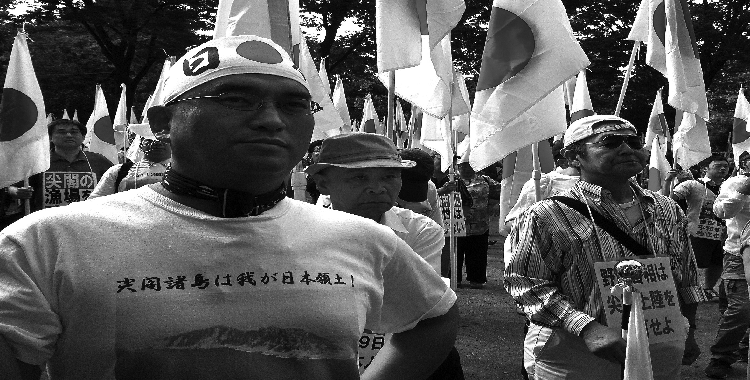Over the last month, a conflict has been brewing in the Far East. Overshadowed by news about anti-American protests in the Middle East, replacement referees, and whatever recent jabs our two presidential candidates have taken at each other, this issue is something that America must keep a wary eye on: a territorial dispute between China and Japan over a small island chain in the southern reaches of the East China Sea.
The Senkaku Islands, as they are known to the Japanese, are a cluster of five islands situated northeast of Taiwan. Although small and uninhabited, the islands hold strategic importance to both nations, and the waters surrounding them supposedly hold rich deposits of gas reserves. Both countries lay claim to the islands; the Chinese saying that they part of their ancestral homeland, with the Japanese retorting that they rightfully received the land from the U.S. in 1972. The conflict began last month when Japan purchased the islands from their private owner.
Despite an escalating war of words, anti-Japanese protests in China, and both countries sending naval patrols to the area, the possibility of war seems very unlikely. China and Japan are Asia’s two largest economies, and are showing no signs of slowing. Their economic fates are intertwined, as they are huge trading partners. But if there is something to be sure of in this crazy modern world, it is that you can never be too sure of anything.
So, why does this matter to America? First and foremost is the fact that we have a security treaty with Japan, meaning that we are obligated to defend them if they are attacked. While this is obviously jumping to conclusions, the militarization of this dispute could spark a devastating regional conflict between China, Japan, the U.S., and their respective Korean allies. This, however, is a very far-fetched scenario.
What is really at play here is economics. The feud puts the U.S. in an awkward position because China and Japan are two of our biggest trading partners. According to the Census Bureau, China is ranked as our second largest trading partner, and Japan is our fourth. The last thing the U.S. needs is for these two economic allies to be at odds. What if Japan were to push for sanctions on China, or for either side to suspend trade to the other, affecting the global economy?
America needs to keep a watchful eye on this dispute. While I usually do not support American involvement in the affairs of other nations, it is imperative that the U.S. makes sure this conflict is resolved peacefully. An escalation of this conflict could have detrimental effects on our economy and foreign trade policy, and in the most extreme of circumstances lead to a war. While there is almost no chance of this happening, for America’s best interests it is still necessary to step up and mediate this argument if it becomes clear that the two parties will not be able to resolve it themselves.









